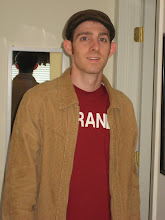Science captivates me. Or, I should say, certain areas of science captivate me. Put a television show or book about space, evolution, wildlife, emerging technology, scientific ethics, etc., in front of me and I can be entertained for hours. Something about the vastness of space, the complexity of life, the processes of evolution, the possibilities of scientific advancement, spark my neural nets something fierce.
And yet, I realize, my brain is not wired for real science. Real science is tedious and slow. The broad strokes of science that I love are built on lifetimes of small, incremental movements. Cataloging, digging, entering data, cleaning equipment, carefully attempting to remove as many variables as possible, scrapping hypotheses in the face of contradictory data. The ideas, breakthroughs, and discoveries that I learn about are distilled from so much rigorous, uneventful day-to-day work that make the field truly admirable, albeit less sexy. In education, which occasionally attempts to guise itself as a science, action research involves much the same process. I find myself far more interested in ideas than in the tedium of action research itself, even if the "action" label is supposed to convince me to feel otherwise.
An idea without methodical, empirical support is much more likely to turn out false. And yet, without someone to tell its story in a persuasive and relevant fashion, to give it a reason for existence, methodically acquired empirical data will languish uselessly in some hall of records.
The scientist and the storyteller are a necessary team for improving the lot of mankind, but for too long they've been forced to live in separate houses, not only in society, but in the mind as well. This division starts in primary and secondary education. How do educators begin to change the notion that these two roles are a forked road, an either/or choice? Each one fulfills the other, gives it purpose, gives it voice.
Subscribe to:
Post Comments (Atom)

No comments:
Post a Comment